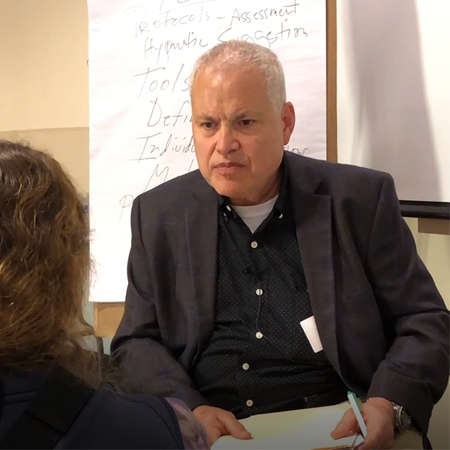Hypnosis for weight management may seem like an odd concept, but my methods are designed to retrain the unconscious mind. Our unconscious mind is what drives our habitual, imagined, and desired actions. If you have tried alternative methods to help reduce your weight or stop habitually eating the foods you crave but need to limit, hypnosis may be a valuable tool for you.
It is important to understand why retraining the unconscious mind works to actively change your desires, imagination and habits for long lasting effects. The following is a breakdown of the rationale behind the use of hypnosis to reduce cravings.
If you struggle with your weight, it’s likely your willpower in the present is at odds with your imagination. When our perspective is centered around “I can’t eat this”, it actually fuels your desire for that food – it intensifies desire which feeds the imagination. And reciprocally, the imagination fuels desire. The unconscious mind does not distinguish between desire and action.
One of principles of Habit Change is that when the willpower is contested with the imagination, imagination always wins the contest. So, the key is to change your unconscious mind’s perspective – to shift it from “I can’t eat this unhealthy food” to “I want this healthy food”.
My Weight Reduction Hypnosis Program is designed to make it easy for you to replace your unhealthy food cravings with healthy eating habits. The program is effective because the hypnotic suggestions I prepare for you are in the precise language your unconscious understands. I give you these individualized suggestions while you are “in hypnosis” and when you are “out of hypnosis” (in a slightly different form). Your unconscious then recognizes these suggestions as being fitting and familiar. It feels as if you gave these suggestions to yourself. And the fact is that after an effective hypnotherapy session with me, you will! This makes acting on the suggestions prepared specially for you so very natural and easy.
Through hypnosis, I can guide you to reprogram your unconscious mind. An initial consultation will allow me to understand who you are, your weight loss journey, your motivation for change and any hinderances to your ability to succeed. I then design a hypnosis plan of treatment specifically for you, so we can retrain the aspects of your unconscious that have been the biggest hinderance to your ability to lose the weigh and keep it off.
For 30 years, I have helped thousands of patients who struggle with weight loss retrain their unconscious mind. If you would like to learn more about my practice, or if you would like to schedule a free consultation appointment, visit us at www.BruceEimer.com or call our office today at (561) 377-1039.
I, Dr. Bruce Eimer, proudly serve patients in the areas of Boca Raton, Delray Beach, Boynton Beach, Lake Worth, Wellington, Deerfield Beach, Fort Lauderdale, Miami, Palm Beach, West Palm Beach, and surrounding areas.










